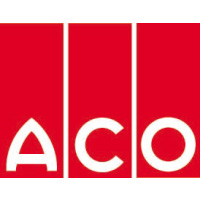SHIP WASTEWATER DISCHARGE PERFORMANCE NEEDS ENFORCEMENT, SAYS ACO MARINE
ACO Marine, together with a group of leading wastewater treatment system manufacturers and environmental organisations, has called for a revision to MARPOL Annex IV in order to verify the ongoing performance and discharge criteria of sewage treated systems onboard ship.
While there are rules in place for verifying discharge parameters, these relate only to type-approval testing in land-based establishments. There is currently no enforcement of the wastewater discharge criteria once a system has been installed and becomes operational onboard ship.
ACO Marine Managing Director Mark Beavis said: “The main contention is that we believe there are type-approved systems in operation at sea that are scientifically incapable of treating sewage waste.”
A paper co-authored by Beavis – Sewage Treatment with No-Sludge Production – A False Claim, and a Non-Conformity – attests: “Some manufacturers claim their sewage treatment plants do not produce sludge. Unfortunately, conformity assessment bodies have approved their equipment. But they have certified impossibilities and created certified ‘magic boxes’. These systems contravene science.”
Beavis said: “Sewage treatment plants protect the marine environment by turning raw sewage into less harmful effluent that meets specific discharge criteria set by the International Maritime Organisation. As a by-product of the treatment process sewage sludge is created that has to be either treated onboard or incinerated ashore. This sludge is a by-product or all treatment processes. But instead of being separated from the treatment process, this sludge is being flushed out in the effluent.
“These ‘magic boxes’ would not be able to perform no matter how well they are operated and we are very concerned about the environmental damage these systems are causing.”
While the rules were tightened with MEPC.227(64) and the use of dilution water limited during performance tests, this has not prevented the certification of these so-called sludge-free systems.
“Certificates have become licenses to pollute. Something is very wrong,” the authors state in the paper.
Existing Guidelines do not explicitly prohibit no-sludge systems but the authors believe the type approval regime is a “contradiction to the IMO’s intentions”.
“There is a lot at stake: the credibility of the approval regimes, the liabilities to shipowners and yards, a level playing field, the IMO’s environmental aspirations and ultimately, the pristine marine water that we have agreed to protect,” say the authors.
The paper was co-authored by Mark Beavis, Managing Director, ACO Marine; Dr Wei Chen, Future Program Development Manager, Wartsila Water Systems Ltd, UK; Dr Elmar Dorgeloh, Manager Director, Development and Assessment Institute in Waste Water Technology at RWTH-Aachen University (PIA), Germany; Holger Hamann, Managing Director, Holger Hamann Consulting; Matthew MacGregor, Executive Director, TEi-Testing Services; Dr Daniel Todt, Project Manager R&D, Ecomotive AS; Niclas Karlsson, Managing Director, Clean Ship Scandinavia; Mark Mellinger, President, Headhunter Inc; and Felix von Bredow, Board of Hamman AG.
The authors call for IMO, its Member States and the approval assessment bodies to identify and to acknowledge the issue and establish protocols in order to prevent such non-conformities from reoccurring.
For more information contact:
Seaborne Communications

